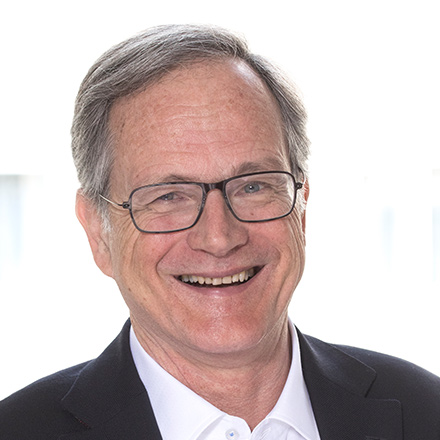Andrea Mombelli, Prof. Dr.med.dent.
Professor and Director, Division of Periodontology
University of Geneva, University Clinics of Dental Medicine, Geneva, Switzerland
Andrea Mombelli is Professor and Director of the Division of Periodontology at the University of Geneva Clinics of Dental Medicine, Switzerland. He was president of the Dental Section of the Faculty of Medicine (2001-2005) and associate vice-dean of the Faculty of Medicine (2005-2011) at the University of Geneva. He is former president of the Swiss Society of Periodontology (1992-1996 and 2004-2008).
Andrea Mombelli graduated from the University of Bern School of Dental Medicine and completed his post-graduate studies reaching the status of Private Docent in 1992. He has a Swiss Federal diploma in dentistry (D.D.S.), a Doctorate in dentistry (Dr. med. dent.) and is a Swiss board-certified periodontist.
He and his colleagues have been pioneers in studies on the diagnosis, etiology and therapy of peri-implantitis. Currently they are involved in clinical trials evaluating new antimicrobial protocols to optimize the treatment of periodontal and peri-implant infections.
Click here for abstract:
 The Residual Pocket - a clinical reality and how to deal with It
The Residual Pocket - a clinical reality and how to deal with It
Even after the best clinically possible periodontal therapy, not all deep lesions transform predictably into a sulcus with physiological probing depth. Residual pockets carry the risk of continuous presence of periodontal pathogens and may be repopulated with a microbiota incompatible with periodontal health. These sites therefore require repeated professional interventions that, over time, may cause substantial irreversible tissue damage. Consequently, there is a high need for safe, efficient and well accepted procedures for subgingival biofilm control in the context periodontal maintenance care. In clinical trials we have evaluated the benefit of several methods for treatment and maintenance of residual pockets. This presentation will address the challenges and possible solutions of presence of residual pockets after periodontal therapy.
 Adjunctive systemic antimicrobials - Protagonist
Adjunctive systemic antimicrobials - Protagonist
For the therapy of any form of periodontal disease, in terms of efficiency and effectiveness, there is no protocol superior to SRP plus systemic amoxicillin and metronidazole. Systemic antibiotics in the non-surgical treatment phase reduce the need and extent of surgery. Surgical procedures carried out in tissues free of infection have better outcomes. However, to optimize the adjunctive benefit of those drugs and avoid over-use, a number of points need to be underscored: First, antibiotics are not meant to replace meticulous mechanical debridement. Second, long-term success of any treatment modality depends foremost on good oral hygiene and continuous maintenance. Third, antibiotics are not indicated in situations that can be resolved predictably with non-surgical mechanical debridement alone, like uncomplicated, moderately advanced periodontitis.


